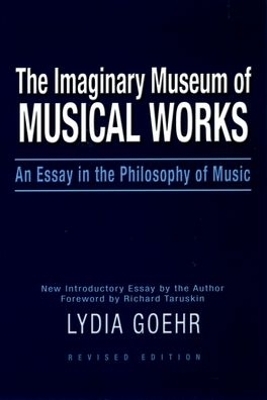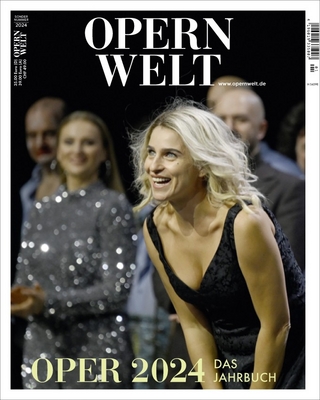
The Imaginary Museum of Musical Works
An Essay in the Philosophy of Music
Seiten
2007
|
2nd Revised edition
Oxford University Press Inc (Verlag)
978-0-19-532478-5 (ISBN)
Oxford University Press Inc (Verlag)
978-0-19-532478-5 (ISBN)
What is involved in the composition, performance, and reception of classical music? What are we doing when we listen to this music seriously? Why when playing a Beethoven sonata do performers begin with the first note indicated in the score; why don't they feel free to improvise around the sonata's central theme? Why, finally, does it go against tradition for an audience at a concert of classical music to tap its feet? Bound up in these questions is the overriding question of what it means philosophically, musically, and historically for musicians to speak about music in terms of "works".
In this book, Lydia Goehr describes how the concept of a musical work fully crystallized around 1800, and subsequently defined the norms, expectations, and behavioral patterns that have come to characterize classical musical practice. The description is set in the context of a more general philosophical account of the rise and fall of concepts and ideals, and of their normative functions; at the same time, debates amongst conductors, early-music performers, and avant-gardists are addressed.
The Imaginary Museum of Musical Works is a seminal work of scholarship, and has appeared in an astonishing variety of contexts and disciplines from musicological and philosophical since its initial publication. This second edition features a new Introductory Essay by the author, discussing the genesis of her groundbreaking thesis, how her subsequent work has followed and developed similar themes, and how criticisms along the way have informed not only her own work but the "Imaginary Museum" concept more generally as it spread across disciplinary lines. A provocative foreword by Richard Taruskin contextualizes Goehr's argument and points to its continuing centrality to the field.
In this book, Lydia Goehr describes how the concept of a musical work fully crystallized around 1800, and subsequently defined the norms, expectations, and behavioral patterns that have come to characterize classical musical practice. The description is set in the context of a more general philosophical account of the rise and fall of concepts and ideals, and of their normative functions; at the same time, debates amongst conductors, early-music performers, and avant-gardists are addressed.
The Imaginary Museum of Musical Works is a seminal work of scholarship, and has appeared in an astonishing variety of contexts and disciplines from musicological and philosophical since its initial publication. This second edition features a new Introductory Essay by the author, discussing the genesis of her groundbreaking thesis, how her subsequent work has followed and developed similar themes, and how criticisms along the way have informed not only her own work but the "Imaginary Museum" concept more generally as it spread across disciplinary lines. A provocative foreword by Richard Taruskin contextualizes Goehr's argument and points to its continuing centrality to the field.
Lydia Goehr is Professor of Philosophy and Aesthetic Theory at Columbia University. She is also author The Quest for Voice: Music, Politics, and the Limits of Philosophy, the forthcoming Elective Affinities: Musical Essays of the History of Aesthetic Theory, and co-editor of The Don Giovanni Moment: Essays on the Legacy of an Opera.
FOREWORD; INTRODUCTORY ESSAY: HIS MASTER'S CHOICE; INTRODUCTION; PART I. THE ANALYTIC APPROACH; PART II. THE HISTORICAL APPROACH; BIBLIOGRAPHY OF WORKS CITED; INDEX
| Verlagsort | New York |
|---|---|
| Sprache | englisch |
| Maße | 218 x 140 mm |
| Gewicht | 476 g |
| Themenwelt | Kunst / Musik / Theater ► Musik ► Klassik / Oper / Musical |
| Kunst / Musik / Theater ► Musik ► Musiktheorie / Musiklehre | |
| Geisteswissenschaften ► Philosophie | |
| ISBN-10 | 0-19-532478-1 / 0195324781 |
| ISBN-13 | 978-0-19-532478-5 / 9780195324785 |
| Zustand | Neuware |
| Informationen gemäß Produktsicherheitsverordnung (GPSR) | |
| Haben Sie eine Frage zum Produkt? |
Mehr entdecken
aus dem Bereich
aus dem Bereich
Mozart und der Abschied von der Aufklärung
Buch | Hardcover (2024)
C.H.Beck (Verlag)
28,00 €


